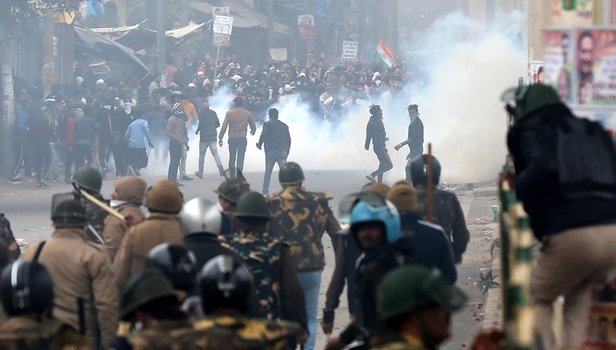Why did the Supreme Court refuse to stay the CCA?
22 Jan 2020 ( IBTN News Bureau )
In the midst of protests across India on Wednesday, 144 petitions related to the Citizenship Amendment Act (CAA) were heard in the Supreme Court, after which the court said that the CAA cannot be stayed without hearing.
141 petitions were filed against the CAA in court, while three in its favor.
The Supreme Court has said that if they make a constitutional bench, then the same bench will give an interim order.
There is uneasiness and protest among the people about this law In view of that, why did the Supreme Court not stay this law?
In this regard, Faizan Mustafa, constitutional expert and vice-chancellor of Nalasar Law University, Hyderabad, said that it would have been better to see the chaos in the country if the government itself would have told the court that we do not mind that you stay on it Put it, but the government opposed the stay, so the Supreme Court did not stay it.
Faizan Mustafa said, "If the government had agreed to stay on its own today, then all the protests and protests would have ended today."
But the question is, why would the government stand up for its stay? Faizan Mustafa says, "Stay would mean that it will not be implemented until the court decides on hearing it."
He adds, "In cases where the interpretation of the constitution is a matter, stay is rarely found."
At the same time, law expert Alok Prasanna says that what was said in the court today should not be taken to mean that the government is relieved and those who petitioned against the law have been disappointed.
He said, "Nothing has been done yet. The government will have to reply in four weeks."
"The 60 petitions that were filed earlier were against the CAA. Later 80 petitions were filed, many against NPR and some to prevent the CAA from coming into force in Assam. The case has now grown a bit. Therefore, the government's response should also come on other issues raised.
According to Alok Prasanna, no one should be happy or disappointed by today's statement of the court.
He says, "If anyone expected relief today, it was wrong to think like that. The matter has just started.
On the court's decision to dispose of the petitions filed by Assam, Alok Prasanna says, "There is no need to make a deep sense of it. The resentment of the people of Assam is that the CAA deadline is 2014 Which is against the Assam Accord, where the time limit has been kept 1971.''
Experts say that NRC is applicable in Assam, therefore, the separate hearing of its petitions is the right decision.
These petitions have been filed by Congress leaders Jairam Ramesh, Mahua Moitra of Trinamool Congress, Asaduddin Owaisi and many others.
On 9 January, the court expressed displeasure over the violent incidents taking place during the protest against the citizenship law, saying that all the petitions related to the case would be heard only when the violent incidents ceased.
The three-member bench headed by Chief Justice SA Bobde and Justice S Abdul Nazeer and Justice Sanjeev Khanna on these petitions issued notice to the Central Government during the hearing on January 9 and sought reply.
The petitioners have urged the repeal of this law against the basic spirit of the constitution and as divisive.
(Click here for Android APP of IBTN. You can follow us on facebook and Twitter)
Share This News
About sharing
-
 16 May 2025
Will artificial intelligence replace teachers in classrooms?
16 May 2025
Will artificial intelligence replace teachers in classrooms?
Will artificial intelligence replace teachers in classrooms?
May...
-
 16 May 2025
"I'm killing those kids, my tax money is doing that" Omar El Akkad on West’s role in Gaza
16 May 2025
"I'm killing those kids, my tax money is doing that" Omar El Akkad on West’s role in Gaza
"I'm killing those kids, my tax money is doing that" Omar El Akkad on...
-
 15 May 2025
Trump showers his Qatari hosts with praise at state dinner
15 May 2025
Trump showers his Qatari hosts with praise at state dinner
Trump showers his Qatari hosts with praise at state dinner
May 1...
-
 14 May 2025
Trump visits Qatar as US envoy hints at Gaza progress, quiet diplomacy dominates meeting
14 May 2025
Trump visits Qatar as US envoy hints at Gaza progress, quiet diplomacy dominates meeting
Trump visits Qatar as US envoy hints at Gaza progress, quiet diplomacy dominates me...
-
 11 May 2025
What can be learned from the latest conflict between India and Pakistan?
11 May 2025
What can be learned from the latest conflict between India and Pakistan?
What can be learned from the latest conflict between India and Pakistan?



